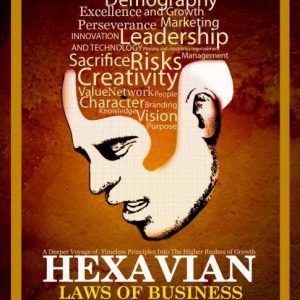By the circular flow model, we see how money moves through society. Money flows from producers to workers as wages and flows back to producers as payment for products. In short, an economy is an endless circular flow of money. Individuals in the most simple macroeconomics explanation is:people become poor by creating the problem of spending more than they earn. But that’s not all, the nature of what you produce and consume is also a factor. Even when you produce, you shortchange your chances of being truly wealthy when you’re not refined or have a refined product as a contribution to the circular flow. First of all, in the cycle of life, our system and in the process of making money and being wealthy, we are all producers and consumers. How we do these differentiates us. In general, you pay when you consume and you earn when you produce. Depending on which parts of this statement your lifestyle is more in alignment to; you can either add poverty or wealth to yourself, then family and nation.

You become poor by staying too deep into one revenue stream only. You become poor by running away from problems or transferring it to the future. This is what the poor and average people are very good at. They avoid or at most discuss the problems but rarely solve them. But on the other hand, every time you solve a problem, you create value and every time you solve a problem you create wealth. Take for example, Dangote produces a lot of products, most of which you and I consume. What he produces is the value you pay for, this value solves the problem of, perhaps, hunger (for example, Dangote Pasta) or problem of building construction(for example, Dangote cement). So to create wealth is to create value that people can and will pay for. Better put further ahead also, Dangote produces more for others to consume which he gets paid for, way more than he consumes that of others (not necessarily in quantity but in monetary values) and the difference in the amount left is what he’s worth. And on top of this, he produces something that you need, so you get indebted, each time he goes into production and then you pay whenever you buy it (whether a spaghetti, a cement et.c) . This isn’t bad, it’s because you need it, it’s a cycle, he probably pays for some things he needs too. But the point is, does he spend more than he makes, is he more of a consumer than a producer, how many things do you pay for and how many things do people pay you for and how well. Look at this from any scale or angle. The answer to this question is the reason why you have the financial status that you presently have, whether good or bad.

How much money leaves your pocket and how much money enters?
Sometimes, it not about how much you are spending, but how much you are making. Sometimes it’s not about how economical you are, but how productive you are. The simple logic is to make more money and spend less than it.
A report shows that on an average, nearly 60% of a Nigerians income is spent on food. But this average is spread across all segments including the rich. So we can assume that most Nigerians are spending 80%-90% of their income on food. We are not just consumers. We have a consumer mentality and consumerism infested consumer behavior that end macro economy. This gap is seen from the firms to the households. Lets explore the firms while comparing say Nigeria with America. The biggest firms on the American stock exchange are companies like Google, Facebook and Amazon. They sell Internet search services, cloud storage services, e-commerce services. They continue to launch new ventures that specialize in advanced robotics and artificial intelligence. On the other hand, the biggest company on the Nigerian stock exchange sells salt, sugar, pasta and cement.
You also become poor when you depend solely on one income source which means higher risk. Do make debtors of everyone else when you start solving problems. Every time you solve a problem, you create value and every time you solve a problem you create wealth.

The same problem individuals have that make them become poor is the same challenges countries are facing. Nigeria and the likes of Venezuela are good case studies of a bad example. On the other hand cities like California are very good examples. Take for example, California has the 6th largest economy in the world. It’s economy is larger than that of France or Brazil. It produces for the world more than it consumes. And it has diversified that production, ranging from oil to education to entertainment It has little offshore oil, yet its economy is larger than States in the US that are famous for their oil reserves, like Texas. California generates much of its revenue from non-oil products. It found a way to absorb and domesticate much of the intellectual output from its premier university, Stanford University, into saleable products within its economy. As a matter of fact, much of California’s economy is built around Stanford University. So with this, Silicon valley developed. I’m sure you’ve heard of Silicon Valley at least once in your life. Now with Silicon Valley came companies like Apple, eBay, Cisco, Lockheed, Hewlett Packard (HP), Google, Netflix, Facebook, Oracle, Tesla…and the list goes on and on ad infinitum.These are multi billion-dollar companies..
But there is also the entertainment industry in California. Yes, Hollywood is in California. The US movies industry contributes about $504Billion to USA’s GDP. Hollywood, as you know, contributes over 70% of that figure. Despite all these, California also thrives on agriculture. As at 2014, California had nothing less than 77,000 farms and ranches raking in about $55Billion in revenue yearly. It produces over 400 agricultural commodities, a large chunk of which it exports. It is the leader in producing exotic fruits in America. Its wine industry is unique.

Back to Nigeria, we produce less and consumer more. We love to spend, and we love the feeling of holding cash and spending it as consumers on things that give us temporal happiness. The truth is that the hardest thing to find in life is happiness – money is only hard to find because it gets wasted trying to find happiness. Money can’t buy happiness, though it can rent it. That temporary high explains why we have so many entertainers with shows that stimulate happiness temporarily. Its easy to think that the large size of our showbiz industry is because we have a large population. But there are over a billion people in China, how many entertainers do they produce or do you even know? Too much entertainment to be productive is cultural for us. Even in a multicultural environment as America, blacks are the ones that show liquidity. We love to pass offering baskets in church, and that it is not religious love to spray money at strip clubs; it’s all the same show of opulence. In Nigeria we spray money at parties. We are the biggest customers of luxury and consumer products. It’s not just a Nigerian problem, its a black thing. Cote d’ Ivoire sells off Cocoa and then imports Chocolate. Sierra Leone sells off Diamond and then imports Jewelry, Even Nigeria, we sell off Crude oil and imports petrol! We are the biggest consumers in the world, that’s why we have very devalued currencies.
We rarely go on voyage into discovering more than we know.
So in summary, and in a no brainier style, see the process of making money as a game. You pay when you consume and you earn when you produce. You can either create poverty or wealth by your activities. You become poor by creating the problem of spending more than you earn. But every time you solve more problems of others, you create value they pay for, and then wealth. Win by finding ways to earn more, it’s a game, else you already know how to be poor, it’s more than a choice, it’s the result of the subtotal of our activities.
Eizu, ©Hexavia!
Strategy. Business Startup and Corporate Restructuring Consulting
T: 0803520289
Uwaoma Eizu is the lead strategist at Hexavia! He is a graduate of Mathematics with two MBAs and over a decade of experience working with startups and big businesses. He is an entrepreneur and sits on a lot of boards too. His core is in building startups and in corporate restructuring. He is also a certified member of the Nigerian Institute of Management, Institute of Strategic Management of Nigeria and the Project Management Institute, USA. By the side, he writes weekly for the Business Day newspaper.



